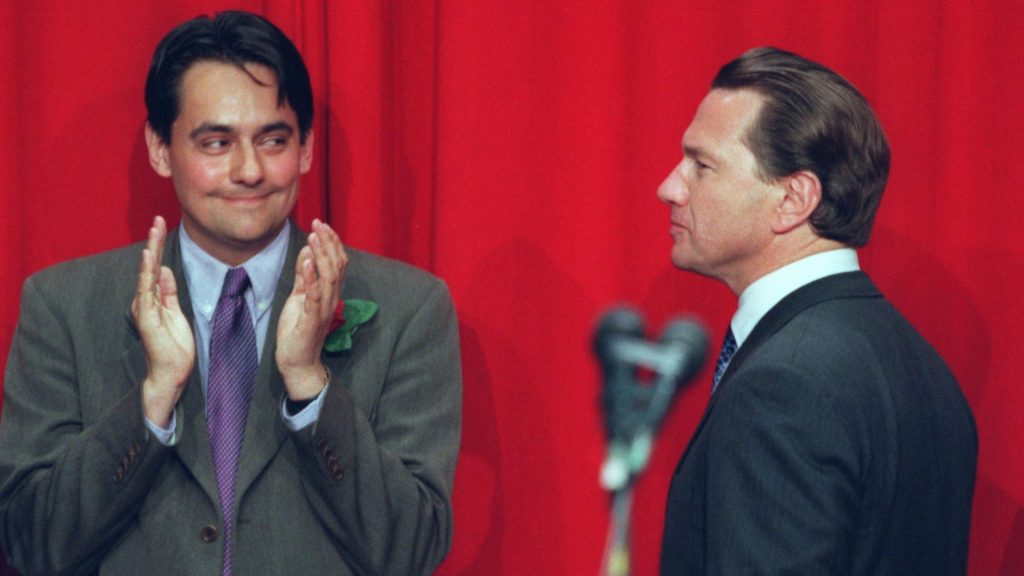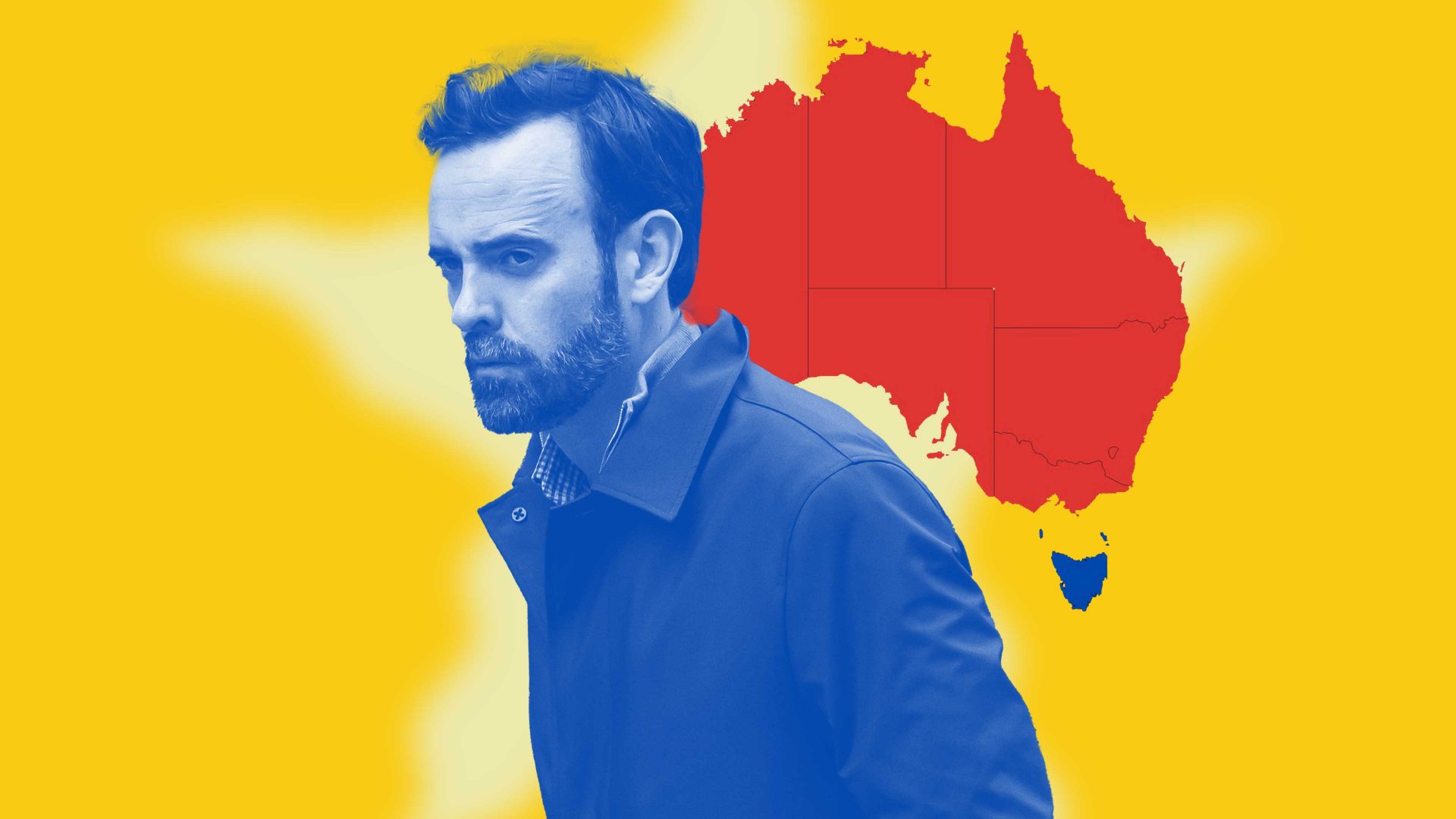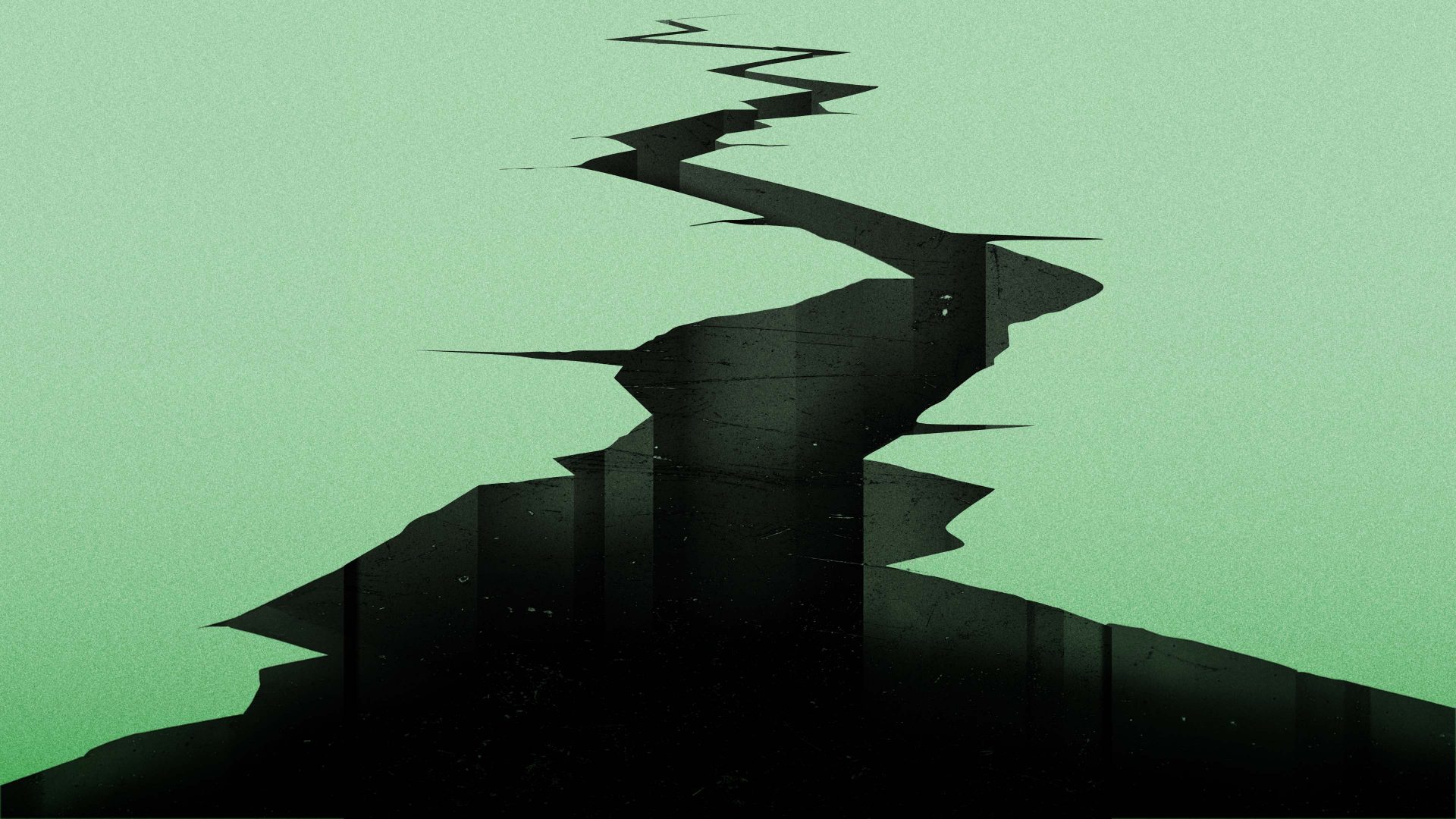Were you up for Portillo? The mischievous question came to define the heady election night in 1997 when the seemingly invincible Conservative Party was slaughtered.
Unexpectedly, Michael Portillo, the ambitious defence secretary who had become favourite to replace John Major once the inevitable happened, lost what had been a majority of 15,563 on a swing of 17.4% to Labour. A lot of voters were up for Portillo – the result came in at 3.10am – and recognised the symbolism of his fall. The mighty Conservatives were not only doomed to opposition but now would be so diminished that they faced the unfamiliar terrain of opposition without leading players that had been so dominant in government.
Fast forward to 2024. In a country with a tendency to elect Conservative governments, the current incumbents are breaking all records in terms of unpopularity. The poll numbers suggest their defeat in 1997 might seem like a triumph compared with what happens once Rishi Sunak dares to go to the country.
Recently the respected data journalist at the Financial Times, John Burn-Murdoch, tweeted that the Tories could come third in terms of seats, behind the Liberal Democrats. He was commenting on an extrapolation of polls that predicted a Labour overall majority of 424. Labour won a mere 179-seat majority in 1997.
Even in the most cautious scenarios, a number of possible Portillo moments can be identified. Some of the Tory figures who have dominated the political stage for the last few years will lose their seats, and a few of those contemplating their post-election leadership ambition, as Portillo was doing before he lost, could be victims of an electoral hammering.
Despite a 15,000-plus majority, Leader of the House Penny Mordaunt is vulnerable in Portsmouth North, where a poll in January had her running behind Labour by 36%-33%. The chancellor, Jeremy Hunt, evidently assumes he might be in trouble given that he has thrown £100,000 of his own money into his local campaign for the redrawn seat of Godalming and Ash, where polling shows him trailing the Lib Dems by 3%.
The defence secretary, Grant Shapps, is predicted to be unseated by a 20-point swing in Welwyn Hatfield. Education secretary Gillian Keegan has been told that even a majority of 21,000-plus might not be enough to hold off the Lib Dems in Chichester. Esther McVey, the minister for common sense, is just about sensible enough to know that Tatton looks like being a Labour gain, despite her majority of 17,000-plus last time.
Another 14 cabinet ministers – including in-the-news science secretary Michelle Donelan, culture’s Lucy Frazer, transport’s Mark Harper and energy’s Claire Coutinho – are highly vulnerable too.
Jacob Rees-Mogg, a totemic figure in this era of Brexit, is not wholly safe in the redrawn seat of North East Somerset and Hanham. Imagine the post-election mood if the question can be asked: “Were you up for Rees-Mogg?”

Other characters that shaped the Brexit years will almost certainly be gone. New European readers will doubtless look for the result from Wycombe, where Steve Baker, a Brexit symbol whose leadership of the European Research Group consisted mainly of making Theresa May’s life hell, has a majority of 4,214. A swing of around 7% would see the end of one strident MP closely associated with the Boris Johnson years, Jonathan Gullis. Another, Lee Anderson, has defected from the Tories to Reform.
Then there are the hordes that have announced they are not standing again. The latest is May, a deeply flawed prime minister but by far the most serious-minded and dutiful out of those who have ruled since 2010.
Whatever happens at the election, the Conservative parliamentary party will have even fewer heavyweights in it than in 1997. Then, the likes of Ken Clarke and Michael Heseltine were on the backbenches. Most of their equivalents now are giving up.
It is time to contemplate what is in front of our eyes. The anti-Tory mood is much greater than it was in 1997. Sunak is out of his depth. Every lever he pulls clumsily makes no difference or makes matters worse.
He leads a party so divided that Priti Patel is happy to be seen dancing with Nigel Farage at the Conservative Party conference and Liz Truss looked close to euphoric as she spoke with Steve Bannon at a wacky Republican conference in the US.
Voters have turned away. Even the Tory newspapers are not reliably pumping out propaganda on behalf of the leadership. Some seem more interested in right wing alternatives, even though Sunak is rooted on the Thatcherite right himself. The Tories are in a crisis and could be facing an electoral meltdown that will make it much worse.
This means that even if the polls are remotely close to being correct we are on the edge of a historic turning point. However cautious a Keir Starmer government might be, whatever its inclination to follow too closely the contours of the last 14 years, a collapse of the Conservative Party would be a change in itself.
Here is the party that ruled for 18 years from 1979 and for another 14 after 2010. During these long reigns, it could do more or less what it wanted and still win elections. Deep recessions in the 1980s and early 1990s were rewarded with huge victories. The chaos after 2010 did not disturb the natural order of things in which the Conservatives win.
Not only were they able to impose policies from the radical right, but they also had huge powers of patronage. One of Margaret Thatcher’s emblematic questions when deciding who to appoint as chair of the BBC was “Is he one of us?” It became the title of one of the best biographies on Thatcher.
The question was applied when it came to filling many of the non-elected posts where considerable power is wielded. The likes of Johnson were even less subtle. To take the BBC again he briefly got his dream of a Tory-supporting chairman and a director general who had been an active Conservative. Meanwhile, for much of these uninterrupted periods in power, the Conservative newspapers danced as one with their ruling party, screaming support and playing down failure.
At times the Conservative Party was omnipotent in its might. If it becomes puny after the next election there will be huge consequences.
The absence of potential weighty leaders and experienced backbenchers will lead almost inevitably to another wacky leadership contest. It will make the bizarre battle staged in the summer of 2019 seem impressively substantial. One candidate then was Rory Stewart, no longer an MP. Another was Sajid Javid, an experienced minister. Like May, he’s standing down.
Hunt made it to the last two last time. Who will stand next time? It seems the overhyped Kemi Badenoch, along with Suella Braverman and Priti Patel, will be fighting it out to secure the support of a shrunken parliamentary party before pitching to a small group of largely right wing party members.
With Portillo defeated in 1997, a path was cleared for a youthful William Hague to become leader. Portillo would almost certainly have won if he had even been able to stand, allowing Hague to mature away from the spotlight. The recent history of the Tory Party would not have been the same.
If the polls are remotely close to the national mood, the Tories will face a challenge even greater than Hague in 1997. In spite of its electoral dominance, a party once known for its loyalty and discipline has been weirdly wild for decades.
In 1995 when John Major was prime minister, he resigned as Conservative leader in order to seek a fresh mandate from his insurrectionary party. He only just secured one. When Iain Duncan Smith was leader he had to stage strange press conferences demanding loyalty. He was soon removed.
David Cameron constantly felt the need to appease his Eurosceptics and ended up offering them a Brexit referendum. Theresa May faced more cabinet resignations than any prime minister in recent history.
May was forced out. So was Boris Johnson. Let us not forget Liz Truss, and now Sunak walks towards his doom. Parties are normally easy to control in the run-up to an election. The Conservatives are openly at war with each other.
Even before the election, Conservative England has lost a functioning party to represent it. Unless the polls are ridiculously wrong, after the election the loud Tory papers will be muted and confused for a time without having a credible political vehicle to assist their brainwashing potency. The BBC will no longer be quite as afraid of the Conservative leadership and its newspapers. Non-Tories will be appointed to bodies that had been confined almost exclusively to those on the right. “Are they one of us?” The question cannot be asked out of power.
Perhaps this is all a dream or a nightmare for Conservatives wondering what will happen next. Maybe this is all much closer to a new and silly Monty Python sketch where the Conservatives cease to exist.
Although the polls can be wrong – and a smart senior Labour figure tells me he predicts a “majority of 30 on a good day” – they are showing a mind-boggling pattern.
If they are right it is over to Keir Starmer and Rachel Reeves to make the most of the political space that will open up for them whatever the mountainous economic challenges. The Conservatives would be leaving the political stage they once dominated in order to stage a noisy civil war from the impotence of humiliating defeat.
After the election, if that question is posed “Were you up for Rees-Mogg?” we will be living in an unrecognisably new political landscape.
Steve Richards presents the podcast Rock N Roll Politics. His latest book is Turning Points: Crisis and Change in Modern Britain




